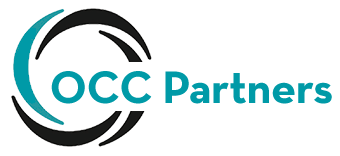Nuances of Successful Phone Interviewing
 It all starts when the recruiter reaches out to you about your availability for a phone interview. When they do, and they will, offer a couple blocks of time, not just one. If you only offer one time, it often requires multiple back and forth emails that delay your interviewing. Also, consider that the person interviewing you may not be in the same area code, so provide availability that would accommodate multiple parts of the country. Many companies may have an office in your city, but their recruitment may be in another or a different state. Even if you know where the home office is, the recruiter could be somewhere else. Again, suggest multiple blocks of time you’re available that could be accommodate east coast and west coast callers if needed. And, include the phone number that you can be reached with your area code. Plain and simple, doing these two simple tasks can speed up the entire process for you.
It all starts when the recruiter reaches out to you about your availability for a phone interview. When they do, and they will, offer a couple blocks of time, not just one. If you only offer one time, it often requires multiple back and forth emails that delay your interviewing. Also, consider that the person interviewing you may not be in the same area code, so provide availability that would accommodate multiple parts of the country. Many companies may have an office in your city, but their recruitment may be in another or a different state. Even if you know where the home office is, the recruiter could be somewhere else. Again, suggest multiple blocks of time you’re available that could be accommodate east coast and west coast callers if needed. And, include the phone number that you can be reached with your area code. Plain and simple, doing these two simple tasks can speed up the entire process for you.
The Day of The Interview
Plan to be available for the call a minimum of 15 minutes before and 30 minutes after (in case it goes longer). Most phone interviews last 30 minutes, but keep 60 minutes available. If you can’t do that, alert the interviewer up front to your time restraints. Use a comment like, “I’ve got another meeting at 1:00 I can’t be late for”, rather than “I only have 30 minutes” or ” I have a hard stop at 12:30″. That will take pressure off you to get the interview wrapped up at a specific time and possibly rushing the interview.
Start with a smile on your face. Not so easy to plaster a fake smile on your face? Think about yourself talking to someone who always make you smile or laugh as you answer the phone.
Greet the caller with your name immediately, and let them know you’re pleased to be speaking with them. I always appreciate when someone says, “I’m glad we could find a time that works.” It tells me they’re excited about the opportunity and starts the conversation off on the right note.
Phone interviewers rely heavily on everything you’re saying and how you’re saying it. There are no non-verbal cues here except how you’re saying things, so keep it upbeat and eliminate distractions, whether it’s music or pets or family. While many people recommend dressing up or making sure you’ve got another person to field distractions, sometimes they can still happen. I used to go into the bedroom, lock the door, and tune out the outside world. Not the recommended environment, but it worked. Whatever it takes.
 Dress comfortably, wear whatever inspires you to have your best conversations, so wear whatever you can be comfortably relaxed in.
Dress comfortably, wear whatever inspires you to have your best conversations, so wear whatever you can be comfortably relaxed in.
Critical to any successful interviewing is building rapport, and it can happen in a phone interview two ways. First, you just connect with the p
erson (maybe because their voice if friendly, or because their background is similar). But, that rapport can sometimes hurt you if you get too friendly and don’t come across as knowledgeable in your field. The other problem is sometimes it might cause some to reveal too much and on the phone, you won’t get to see the interviewer’s non-verbal responses to the messages you’re conveying.
The second way to build rapport is to be upbeat and knowledgeable. When offering responses, they should come across as well thought out, thorough, and concise. Often people have good examples of their successes, but the story they tell about them goes on and on, and by the time they’ve told the entire story, I’ve lost interest. Especially when they do it multiple times in a 30-minute interview. At that point, I’ve also determined they don’t have the sense of urgency we do and won’t be effective in this fast-paced business world we are all a part of today. Unfair? Maybe, but I, the recruiter, must decide on this candidate’s next step and I only have so much time. So, here’s where being prepared becomes your advantage. If you’ve prepared for the interview ahead of time, knowing your strengths and why you consider them strengths, having several responses to questions like, ‘Tell me about a time you solved a complex problem,’ or ‘Explain what you’ve done that shows you’re an analytical thinker’ if you’re applying for a job that has analysis involved, then the interview should go smoothly. Many companies today focus on customer service, both inside and outside the company, at all levels, so be prepared with a response, even if you don’t have external customer contact. Who are your customers? Explain how you’ve taken extra steps to insure they’re satisfied.
And if you have additional constructive comments on a topic don’t hesitate to bring them up during the conversation. But again, be concise.
One of the advantages of a phone interview is that it diminishes the difference between an introvert and extrovert, because generally everyone is friendly on the phone. It also removes your appearance which can help, because it’s not a distraction. Bottom line, what the interviewer is looking for is knowledge, experience, and cultural fit. And, regarding culture fit, while every company is different, most look for someone who’s motivated, energetic, positive, and exhibits high integrity. And often, these characteristics come through in something as simple as a phone interview.
Have your resume handy, so you can easily reference it. Also have your prep work available and don’t forget to have the job description next to you too.
 After you’ve answered a question, a great suggestion is to ask the interviewer if you’ve answered their question. It’s a great opportunity for them to bring up something that may need clarification. And, while the interview is your time to highlight yourself, don’t dominate the conversation, wait for the interviewer to ask questions. And then respond to the question and be as specific as you can. With that said, it’s also your time to get some of your questions answered, and you can ask right in the beginning or at the end, if you can ask a few questions if the interviewer hasn’t brought it up.
After you’ve answered a question, a great suggestion is to ask the interviewer if you’ve answered their question. It’s a great opportunity for them to bring up something that may need clarification. And, while the interview is your time to highlight yourself, don’t dominate the conversation, wait for the interviewer to ask questions. And then respond to the question and be as specific as you can. With that said, it’s also your time to get some of your questions answered, and you can ask right in the beginning or at the end, if you can ask a few questions if the interviewer hasn’t brought it up.
At the end of the interview, show interest and ask what the next step is, and/or what the entire process will be, and at what point will there be an in person interview. More and more companies never meet you in person, but conduct all interviews via phone or Skype. So, the more you know, the better you can prepare.
After the Interview and ‘The Thank You’
Shortly after you conclude the interview, send a thank you note. Today, the preference is an email and a generic one is nice, but nothing more. Including a specific topic or detail in the thank you can get you bonus points. And, it doesn’t need to be the reasons you’re a good fit, but what you appreciated about the interview that will stand out. You can include information if it’s additional information that wasn’t discussed during the interview and can benefit you, but keep it concise and brief.
Follow-Up After the Interview
How long do you wait to reach out to your interviewer to check on your status? In general, allow 5 business days before you make any attempts and done by e-mail is always the best, and most appreciated by companies. The only exceptions would be if the recruiter or screener told you they should have an answer in a specific time, then allow another 2 days and follow-up. Your career is critically important to you, and all companies understand that.
Summing this up, have a positive attitude, be flexible with your availability, and be prepared!









